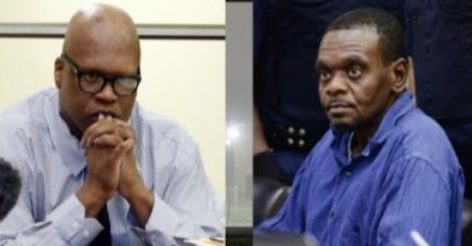Photo: YouTube
On September 28, 1983, 15-year-old Leon Brown and his 19-year-old half brother Henry McCollum were detained for interrogation about the gruesome assault, rape, and murder of 11-year-old Sabrina Buie in Red Springs, North Carolina.
For hours, Robeson County Sheriff’s deputies simultaneously cajoled, bullied, threatened, yelled, and lied to the two Black, intellectually disabled teenagers while feeding them information about a crime they didn’t commit.
Police told them that they could go home if they signed a piece of paper.
Wanting it to be over, and not understanding that they were being coerced, the two teenagers signed false confessions.
But Henry and Leon didn’t go home for 31 years.
Only after they signed the fabricated documents did the deputies read them their Miranda rights. A year later, they were sentenced to death.
The same night as the brothers’ detainment, police ran into a man named Roscoe Artis, who just weeks later would lead police to the scene of another identical rape-murder he confessed to committing—in the same soybean field, in the town of 4,000 people. Artis lived a block away from where Buie’s body was found.
Investigators didn’t bother to run a background check on Artis the night of the murder. If they had, they would have seen his history of committing violent sexual attacks dating back to 1957, and the active warrant for his arrest in yet another rape-murder in which the victim was asphyxiated and left wearing only a bra—just as Buie was.
But Artis was never mentioned in relation to the Buie case. In the decades to follow, as all three sat on death row, he repeatedly told attorneys that Henry and Leon had nothing to do with the murder, expressed guilt for Buie’s death, and revealed new details about the crime.
Artis wasn’t listed as a suspect in the case until 2014, when the North Carolina Innocence Inquiry Commission, a neutral state agency, developed exculpatory DNA evidence indicating Artis, and not the brothers—as all signs should have from the start. Still, Sheriff Kenneth Sealy, deputy Joel Locklear, and State Bureau of Investigation agents Leroy Allen and Kenneth Snead, ignored him as a suspect—both on the night of the brothers’ detainment, and for the next 31 years.
In 2015, in response to petitions and advocacy on the outside, Republican Governor Pat McCrory pardoned the brothers following an additional nine-month personal review of the case. Henry and Leon filed a federal civil suit against the Town of Red Springs, the SBI, and the Robeson County Sheriff’s Department for their wrongful imprisonment. Red Springs settled with the brothers out-of-court after their release, but law enforcement held out.
The SBI and the sheriff’s department, represented by the Attorney General’s’ office, claimed that what happened to Henry and Leon was a product of “ordinary police work,” and that the doctrine of qualified immunity kept the officers from liability.
Qualified immunity, based on the assumption that the officers were working in “good faith” and integrity throughout the investigation, protects law enforcement officers’ rights above those whose lives they ruin.
Read rest of story here.












